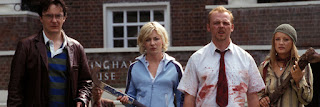Running time: 141 minutes
Certificate: 15
Language: English
Screenplay: J. Michael Straczynski
Director: Clint Eastwood
Starring: Angelina Jolie, Gattlin Griffith, John Malkovich, Jason Butler Harner
 |
| Christine tries desperately to get the help she needs. |
Christine Collins (Angelina Jolie, shining brighter than everyone, as usual) is a single mother in 1928 L.A. She comes home from work one day to find her 9 year-old son Walter (Gattlin Griffith) missing. She goes to the police for help, and the search begins. After five months, the LAPD claim Walter has been found, and mother and son are reunited publicly, the police taking every opportunity they can for some positive publicity. The only problem is, Christine can see, clearly, that the boy they've brought to her isn't her son. Eager to maintain the positive boost to their reputation, the LAPD flat-out shut her down, telling her that it definitely is her son.
 |
| Christine has her nagging doubts and worst fears confirmed. |
Part of the film also follows a discovery at a dilapidated farmstead, where a horrific tale offers a clue to the true whereabouts of Walter.
The film takes in several genres, moving smoothly from a missing persons drama, to noir, through horror to a courtroom drama. The characters are generally quite one-dimensional, so I think this changing of genre makes little difference to them; perhaps if there was more complexity to them, it would be more jarring. It's a competently told story, based on true events, and Jolie is magnificent, but the no-frills, somewhat pedestrian film-making makes it much less memorable than it might have been.
Score: 6/10
Reviews out there certainly covered a number of varied opinions; not only was there the 5-star Empire review, but there is also this review from Dana at Slate, who was about as impressed as I was, and this one from Christopher at The New Republic, and he declared it the worst film of the year, which I though was a bit over the top.























